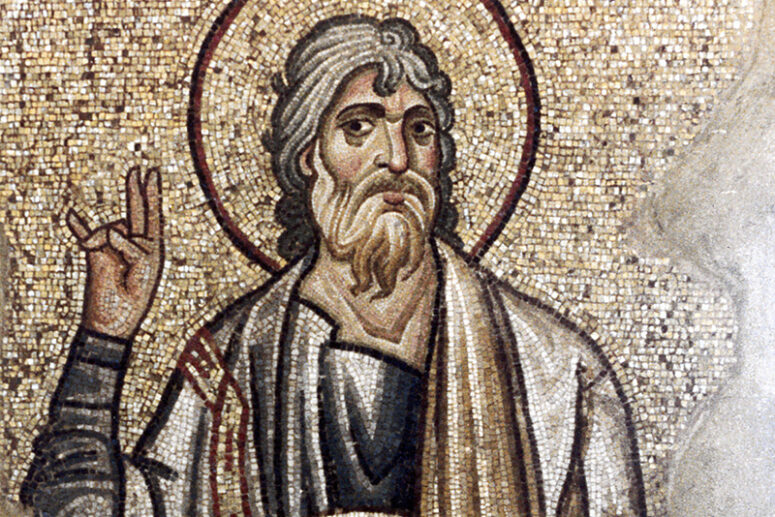
As the feast of the Nativity is approaching, let us take some time to fill the gaps in our knowledge of the Scripture.
Most Christians today are too busy to read the Bible. At best, we can get ourselves to read the Gospel, but not the Old Testament and its ‘more difficult’ books of the prophets. Yet on 16 December, we commemorate the Prophet Zephaniah. Let us use the occasion of this feast to take a more careful look at the short book of Zephaniah, and learn from it.
Zephaniah lived during the so-called second period of prophetic ministries that commenced with the final demise of the Israeli kingdom and the fall of its capital Samaria in 722 B.C. In the canonical New Testament, the Book of Zechariah follows the books of Nahum and Habbakuk, even though the prophet Zephaniah lived before the other two prophets. He was the prophet who reproved, and in doing so he exemplified the workings of the other prophets of the second period. Zephaniah reproved the old-testament church, its clergy and members and predicted destruction for their apostasy.
In this context, let us note the eschatological dimension of the predictions of the second-period prophets. For example, in the forthcoming fall of Jerusalem, they recognised the imminent destruction of the world at large. In this way, they break away from having an optimistic view of humanity’s future common among their predecessors – something that the people today choose to ignore to their peril. Yet since the prophecies on the Kingdom of Judah have materialised, so will those in the more distant future. Today’s decision-makers and opinion leaders promise us a bright future. But are they only creating in us an illusion of steady and all-beneficial progress? But let us think again. Understood as sustained growth of the body of knowledge, know-how and technologies, the way of progress leads us to greater complexity; and the more complex a structure, the more vulnerable it is to destruction. It is easier to demolish a brick wall than a wall of a single piece of granite. By the criterion of durability, progress is in fact a downward movement, an evolution from a more perfect to a less perfect world. No degradation can last forever, and it must eventually bring us to destruction. We fly on planes, and we have learned to cure many illnesses, but still, our world has become more fragile than before – environmentally and socially. The books of the biblical prophets make us reflect on all these matters. We should not only accompany our reading by referring to the commentaries of the holy fathers, but also by a critical reflection on the present in the spirit of the holy fathers.
But let us now turn to the verses of the book of the Prophet Zechariah. It opens with a statement of the author’s ancestry down to the fourth generation, Indicating to us the writer’s considerable social standing and royal descent. It also states quite clearly that Zechariah prophesied during the reign of the righteous king Josiah.
Already in the second verse, we read the announcement of destruction and are told about its causes. “I will sweep away everything from the face of the earth,” declares the Lord. “I will sweep away both man and beast; I will sweep away the birds in the sky and the fish in the sea— and the idols that cause the wicked to stumble. When I destroy all mankind on the face of the earth,” declares the Lord (Zephaniah 1: 2-3). Here, the prophet makes an unambiguous allusion to the Covenant with Noah. Recall that after the Great Flood, God promised to people not to use the same radical means against them again. Yet the problem is not in Him breaking His word but in the people breaking the terms of the Covenant that laid down a clear moral law. Dishonour will spread across the face of the earth, and Zephaniah prophesies destruction “for those who bow down on the roofs to worship the starry host, those who bow down and swear by the Lord and who also swear by Molek, those who turn back from following the Lord and neither seek the LORD nor inquire of him.” (Zephaniah 1: 5-6). No one will be spared – Unbelievers or people who swear by the Lord or those who make a semblance of belief.
The prophet Zechariah also forewarns that no earthly riches will help us at the time of judgement. “Neither their silver nor their gold will be able to save them on the day of the Lord’s wrath. In the fire of his jealousy, the whole earth will be consumed, for he will make a sudden end of all who live on the earth.” (Zephaniah 1:18). It may seem self-evident, but he refers here to the inner state of a person, not the outward impression they produce. Some of us have achieved something in our lives and may have our fans or admirers among our friends, colleagues, superiors or subordinates who acknowledge our victories and assets. But let this not lead us to complacency or create in is an illusion of success and well-being; may it not leave us blind to the reality of our inner selves that will be revealed on the day of Judgement, when it is already too late to make any changes.
The second and third chapters of the book of Zephaniah continue the theme of the Lord’s judgement. Zechariah begins by revealing the woes expecting Jews and Gentiles alike. This narrative is the Prophet’s clear warning about universal accountability for the evil done. Some may not know Christ or be aware of the good news of salvation, but all have an inner moral law and know sad the consequences of breaking it. In the third chapter, messianic in content and tone, we see a glimmer of hope. Verses from this book are read as paroemias at churches on Palm Sunday and Easter Saturday. When God sends us grief, he also brings hope and reassurance. Denouncing the iniquities and announcing the destruction of the world, Zephaniah also delivers a hopeful message, “The remnant of Israel will trust in the name of the LORD. 13 They will do no wrong; they will tell no lies. A deceitful tongue will not be found in their mouths. They will eat and lie down and no one will make them afraid… The Lord has taken away your punishment, he has turned back your enemy. The Lord, the King of Israel, is with you; never again will you fear any harm… The LORD your God is with you, the Mighty Warrior who saves. He will take great delight in you; in his love, he will no longer rebuke you, but will rejoice over you with singing.” (Zephaniah 3:13, 15, 17).
These three chapters are short, but the depth of their message is striking. They give us anxiety and make us fear, but in the end, they inspire in us strong hope and deep trust in our merciful and loving God.
Translated by The Catalogue of Good Deeds
Source: https://pravlife.org/ru/content/konec-sveta-polon-nadezhdy-ili-opyt-profeticheskogo-sluzheniya-proroka-sofonii

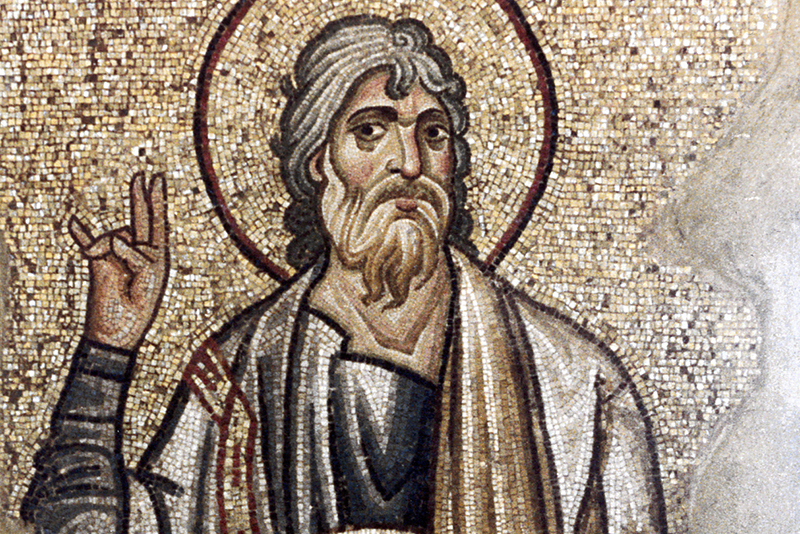
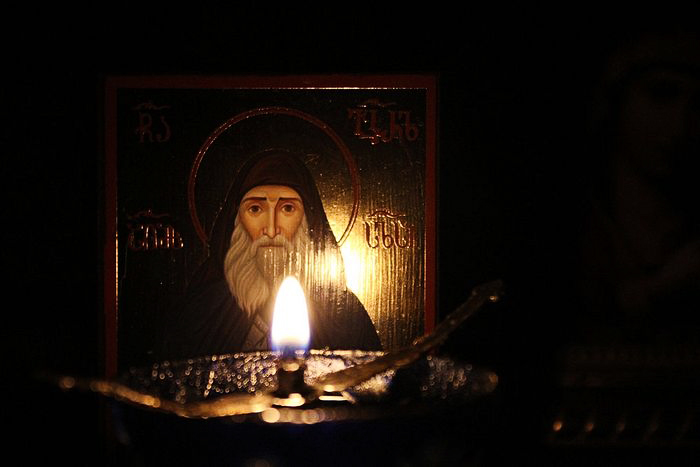
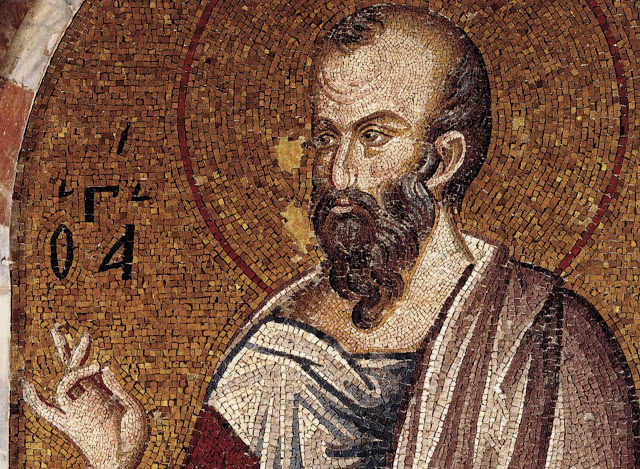
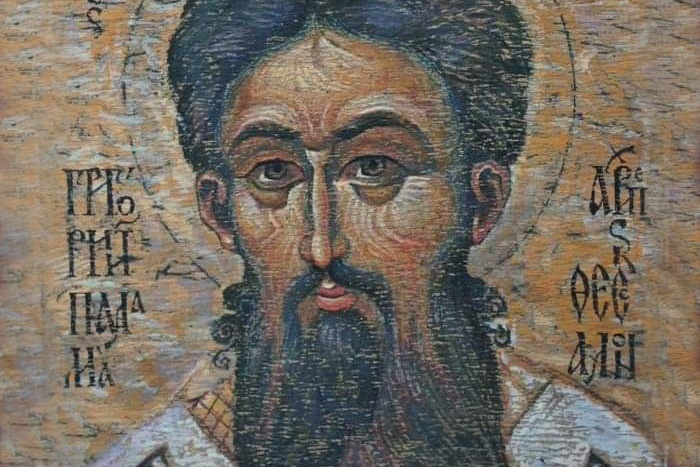
GOOD DAY,
I’D LIKE TO USE THE IMAGE AT THE TOP OF ARTICLE FOR EDUCATIONAL PURPOSES. CAN YOU LET ME KNOW IT’S SOURCE, PLEASE.
THANK YOU, SUE JOHNSON SCA CHRISTIAN ACADEMY, SPARTANBURG SC
Greetings! We just took it from the internet a long time ago, we don’t have particular source.